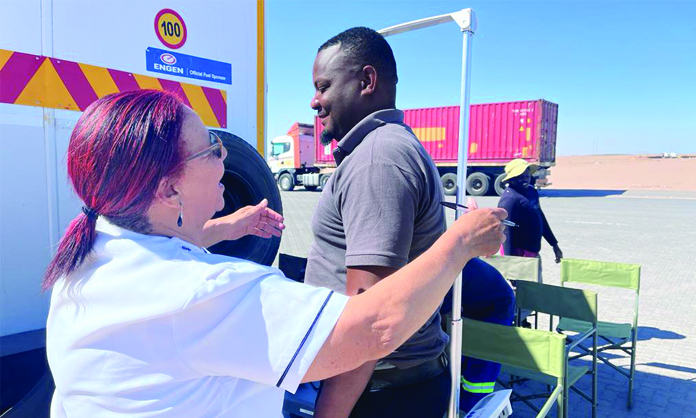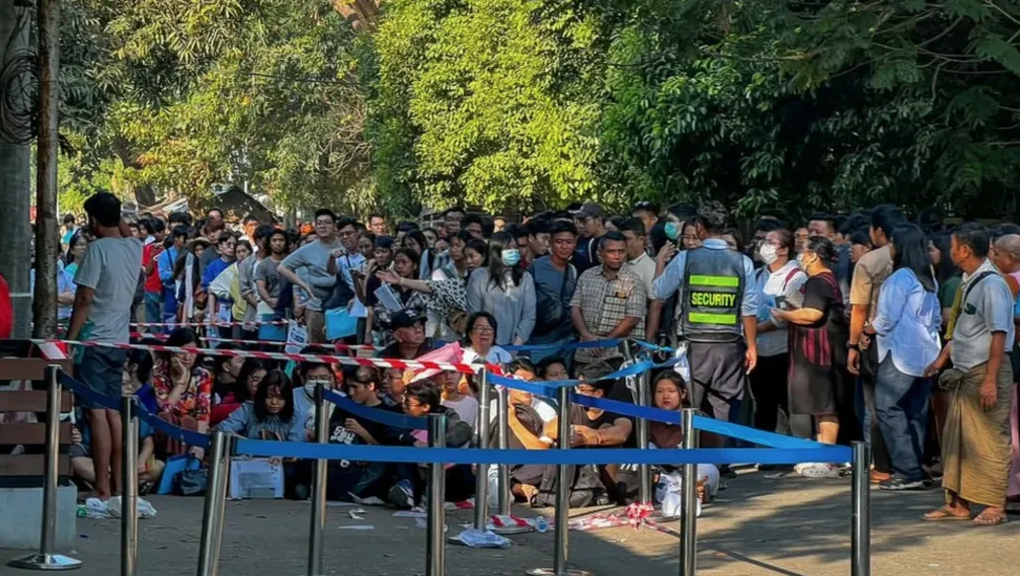Festive season celebrations led to a low uptake of health services at Walvis Bay Corridor Group (WBCG) clinics at border posts.
The WBCG provides health services at border posts to cross-border clients such as long-distance truck drivers and sex workers.
WBCG project manager for wellness services Edward Shivute, in an interview with The Namibian on Friday, said the festive spirit overshadows the importance of health check-ups.
“Many people were in celebratory moods and rather concerned about enjoying the festive season with their loved ones, preferring not to go for medical check-ups, which could expose them to unfavourable health conditions. They would rather opt to go for medical check-ups once the festive season is over,” he said.
He added that the WBCG, in collaboration with the Ministry of Health and Social Services and its development partners such as the SADC Secretariat, United States Agency for International Development (USAID), Global Fund and other local organisations, kept its clinics and outreach services operational over the festive season.
The services covered HIV prevention, testing, treatment, cervical cancer screening and lifestyle disease testing.
He said lifestyle disease testing, including cholesterol and glucose screening and blood pressure measurements, were done because people tend to neglect their health during the festive season as they binge on all types of food.
“We reminded people again about the adverse effects of not taking care of their bodies through the type of food they eat during the festive season. It is also a time when most of us engage in risky sexual activities, hence providing various disease prevention tools,” said Shivute.
He added that most of the clients who visited their clinics also complained of health conditions such as flu, fever and headaches, while most women were seeking family planning services.
According to the WBCG statistics, over 100 long-distance truck drivers and 75 female sex workers were tested for HIV at the Katima Mulilo and Oshikango Cross-Border Clinics, while 101 clients visited the border clinics for their antiretroviral therapy refills and 41 clients requested Pre-exposure Prophylaxis services.
Shivute said the WBCG is planning on expanding its health and wellness service to include mental health services, cancer screening, nutritional and diet-related services, as well as addressing the impact of climate change on health.
Cross-border truck driver Simon Ruben said drivers were under pressure to deliver goods to clients during the festive season and had little time to visit the clinics.
“We had to collect and deliver goods for clients, especially the northern regions in time for the festive season. The pressure was because many suppliers in South Africa were also closing before Christmas and the queues at the borders were also long,” he said.
Namibian Revolutionary Transport Union leader Petersen Kambinda said the problem is the lack of communication between the WBCG and its stakeholders.
“There is mistrust between the group and the truckers because of the issues they were pushing during the Covid-19 pandemic. When they do their things, the truckers are always suspicious of what they are doing,” said Kambinda.
He added that the union is willing to assist in getting the message of the WBCG across to its members if the group engages the union.
Stay informed with The Namibian – your source for credible journalism. Get in-depth reporting and opinions for
only N$85 a month. Invest in journalism, invest in democracy –
Subscribe Now!






